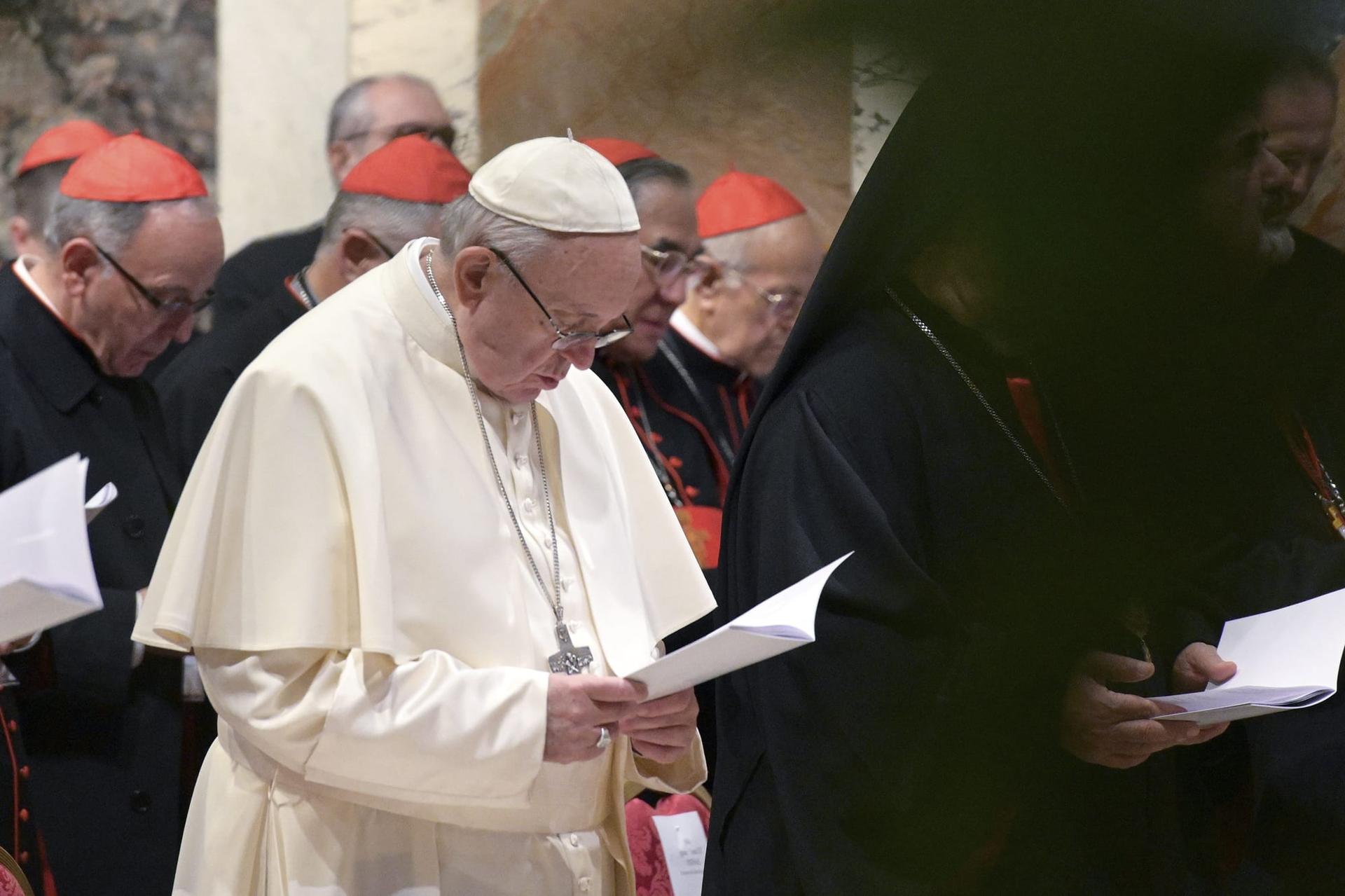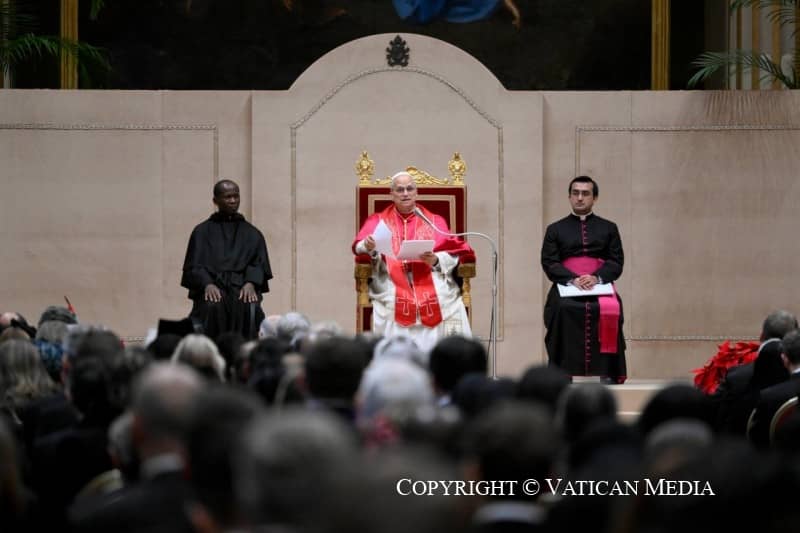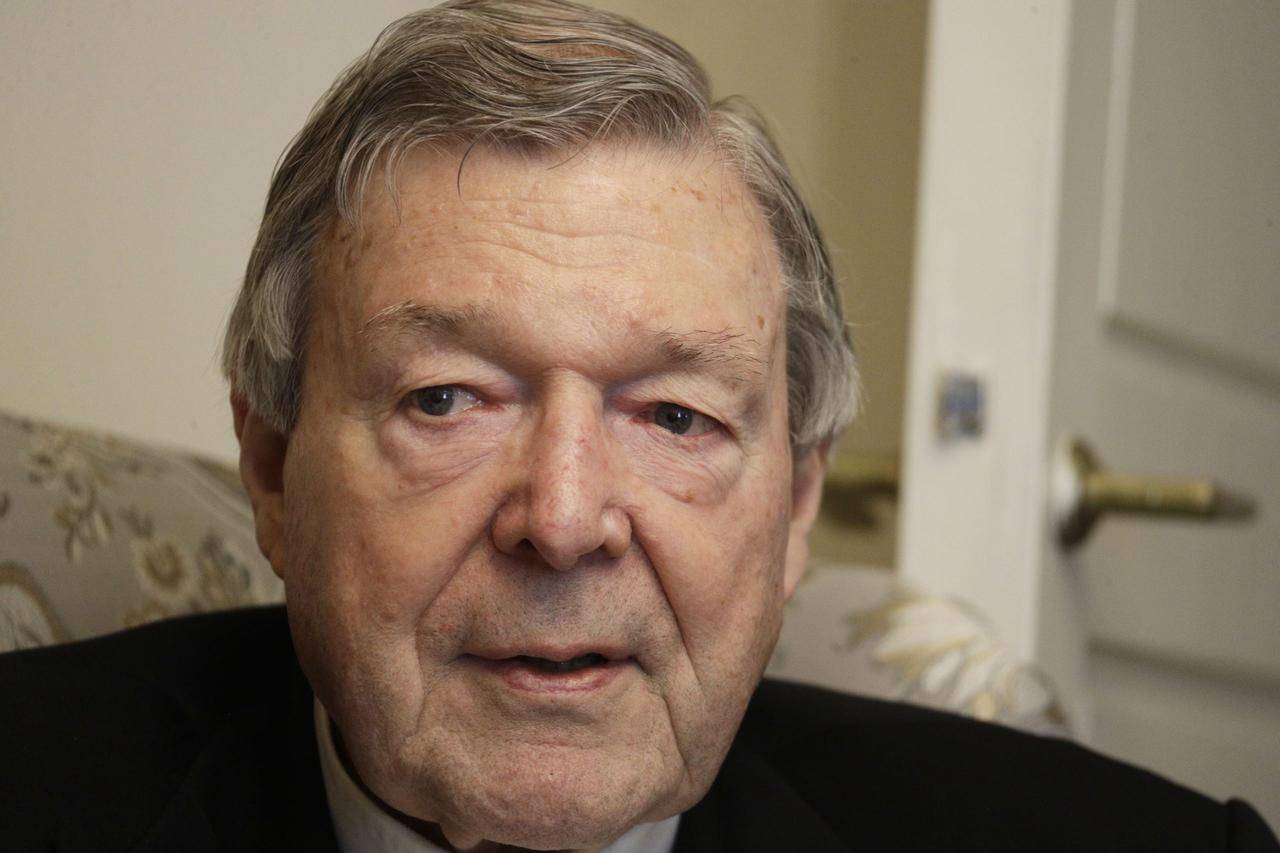ROME – One hallmark of Pope Francis’s style is that during big moments, he prefers to have his friends and allies in the spotlight. That’s certainly the case during his high-stakes summit on the clerical abuse scandals this week, as the prelates given choice speaking slots would be on any short list of Francis’s biggest supporters.
As a result, it’s worth paying attention to what these prelates say, because if it doesn’t directly reflect the pope’s personal thinking, it’s at least a point of view he’ll be inclined to take seriously.
In that spirit, here’s one clear take-away: The concept of “pontifical secrecy,” if not quite on life support, has certainly seen better days.
Over the last three days, two prominent speakers took direct swipes at pontifical secrecy, both heavy-hitters in Francis’s papacy: Cardinal Reinhard Marx of Germany, a member of the pope’s “C9” council of cardinal advisers, and Cardinal Blase Cupich of Chicago, essentially the pope’s go-to man in the United States.
Speaking on Friday, Cupich went first. Though his reference was brief, it was directly on point: “The reporting of an offense should not be impeded by the official secret or confidentiality rules.”
By “reporting,” of course, Cupich meant informing police and civil prosecutors of child abuse allegations against Church personnel. Over the years, officials often cited obligations to secrecy imposed under Church law as a reason for not making those reports – so, in context, Cupich was basically saying that’s bunk.
Next up was Marx, who, in essence, argued that pontifical secrecy needs to have its wings clipped – from a blanket requirement of keeping virtually everything confidential to a more 21st century concept of “data protection,” meaning shielding personal details from hackers with malicious intent, not withholding information from people or agencies with a legitimate right to know.
“We need to consider the definition and limits of pontifical secrecy,” Marx said. “In light of changing communications patterns in the age of social media, when each and every one of us can establish instant communication, we need to redefine confidentiality and secrecy and distinguish them from data protection.”
If the Church doesn’t do so, Marx warned, “we’ll either squander the chance to maintain some level of self-determination or expose ourselves to the suspicion of covering up.”
RELATED: Key papal ally calls for reconsidering scope of pontifical secrecy
At a news conference Saturday, the same point was made by Archbishop Charles Scicluna of Malta, formerly the Vatican’s top prosecutor for sex abuse crimes and a leading reformer.
“There’s a need for transparency, and a definitive movement toward the culture of disclosure,” said Scicluna.
Scicluna said the problems regarding transparency in the Church are “not only ad extra,” meaning with society and institutions, but also within the Church itself, from one diocese to another.
RELATED: Pope’s A-team on abuse wants ‘culture of disclosure’ rather than secrecy
Even outside the Vatican’s synod hall where the summit is taking place, secrecy took a beating.
The Archbishop of Armagh and the Primate of All Ireland, Eamon Martin, told Crux Saturday that he supported calls for greater transparency.
“Secrecy must go out the window” when it comes to the abuse of children, he said. “Secrecy has been one of the root causes of the problem we are in today.”
Speaking of his own experience in Ireland, one of the countries hardest hit by the clergy abuse crisis, Martin said “my files have to be open.”
RELATED: Irish archbishop says abuse summit ‘much closer’ to worldwide policy
At this point, a bit of background on the pontifical secret may be in order.
While virtually everything that happens in the Vatican is considered confidential in some form, covered by what’s known as the “secret of the office,” more serious matters traditionally have been subject to a “pontifical secret,” violation of which can trigger severe penalties up to excommunication.
(Of course, very few things covered by the “pontifical secret” actually remain hidden. As the old Roman joke goes, what a “pontifical secret” really means is that the pontiff is the last guy to hear about it.)
The issue of pontifical secrecy exploded in 2003, when CBS broadcast an exposé pivoting on a 1962 Vatican document called Crimen Sollicitationis, which dealt with the canonical crime of “solicitation,” meaning a priest abusing the confessional to proposition someone sexually. Among other things, it imposed secrecy on canonical investigations of these cases and other sexual misconduct by a priest.
Many commentators touted Crimen as a “smoking gun” proving that the cover-up of clerical abuse was an explicit Vatican policy, although that was an overreach. First of all, the vast majority of bishops in the world had never heard of the document before 2003. Even if they had read it, they would have discovered that it applied only to the content of the Church’s legal procedures, not to whether they should also report the crime to the police.
Granted, such fine points have sometimes been lost on mid-level managers, who simply see the word “secret” and assume the safest course is to keep their mouths shut unless specifically directed to do otherwise.
On the other hand, canon lawyers and other experts say there are often perfectly legitimate reasons in abuse cases for some degree of secrecy (a better word for which is probably “confidentiality”). It allows witnesses to speak freely, permits accused priests to protect their good name until guilt is established, and encourages victims to come forward who don’t want publicity. Moreover, such secrecy is also not unique to sex abuse – it applies, for example, to the appointment of bishops and to the Vatican’s diplomatic communications.
If the problem in the past was that too many bishops erred on the side of caution in keeping things secret, skeptics may wonder about a risk in the wake of this summit of an equal-and-opposite mistake of disclosing virtually everything without considering the consequences.
That, at least, is something that figures such as Cupich, Marx and Martin may have to ponder as a brave new world in Catholicism of “traceability and transparency,” as Marx called it Saturday, begins to take shape.











